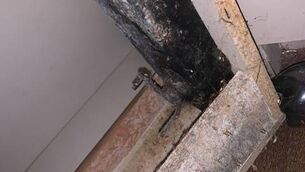Patients store sperm for future family hopes
The centre’s manager, Declan Keane, said the unit offered men and women who are undergoing chemotherapy, radiotherapy or radical surgery the best chance of having a family in the future.
“We look on it like an insurance policy. It’s there if it is needed. It also helps patients to adopt a positive attitude about their treatment and outcome,” said Mr Keane.













